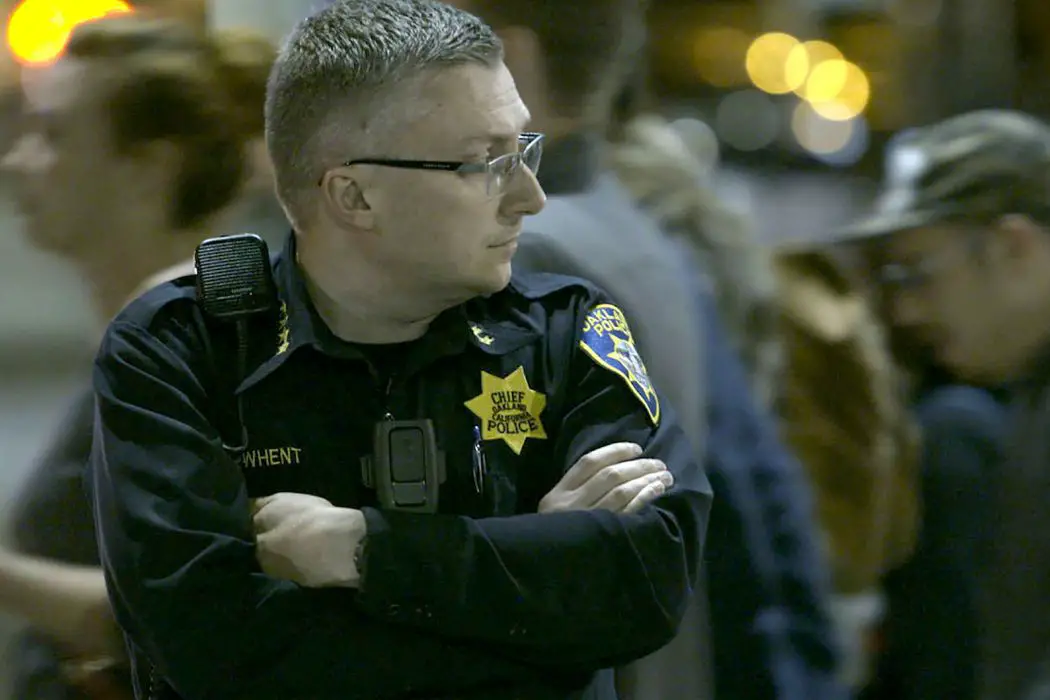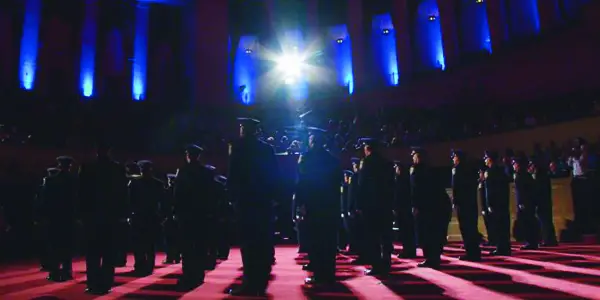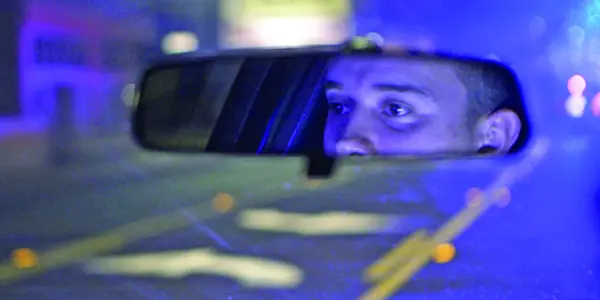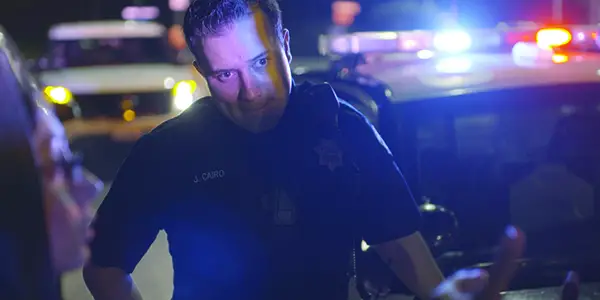THE FORCE: Taking Down The Blue Wall Of Silence

Arlin is an all-around film person in Oakland, CA. He…
For an institution as ubiquitous and ingrained in civic life as police, with municipalities are often covered by departments from multiple levels of government, it should me more of a shock how opaque it is. Most of what we know about policing we gather from movies and TV shows, or piece together from isolated incidents across time and space.
Though departments throughout the country obviously have different officers representing them, a picture has come together of a sort of group think that pervades the apparatus that transcends organizational boundaries; an attitude defined by toxic masculinity, PTSD, and a blatant disregard for human life and dignity. It’s no wonder then that police departments remain insular and self-perpetuating, closed off to outsiders and eschewing transparency however possible.
Director Peter Nicks is trying to deal a serious blow to the “blue wall of silence” with his second feature documentary, The Force. The film chronicles two years Nicks and his crew spent embedded the the Oakland Police Department, a body attempting to undergo a reinvention to finally service a community that has historically seen it as more of adversary than asset.
That combative history was so ingrained in and definitive of the department that they were put under federal oversight in 2003 after major abuses of power came to light. At a time where public confidence in police has hit modern lows, The Force asks if it’s even possible for progressive change to occur within an institution founded upon oppression.
Destructive Mentality on Full Display
The film references the “cop movie”, a primary vehicle through which we understand policing, by opening with their signifiers: a pulsing synth score reminiscent of Miami Vice plays over a montage of shots from in and around the patrol car, colored by the red and blue lights of patrol cars and ambulances, building a sense not of Oakland, but of the Oakland that OPD sees. From the outset the movie is trying to convey a sense of openness, bringing a perspective usually reserved for those on the force.

That perspective, however, frequently seems laden with the sort of toxic masculinity that would emerge in full later on in the film. A graduating academy class engages in a deep-voiced call and response chant to psych themselves up for their physical inspection, standing rigid and stone-faced in front of their chief, traditions that recall the military experience with which many new officers arrive.
While it may make sense in the context of a national defence force, and even that’s arguable, such displays demonstrate not only the cold inhumanness that many associate with police officers, but also the emotional absence that American society asks of its men. This is a dangerous and tragic combination for those tasked with protecting a community.
But with its nearly unprecedented access, The Force is able to pick up more subtle nuances that ask us to consider the vetting process for cops. When you see a trainee attempt to justify a man being shot by an officer 13 times, all the while completely steamrolling his female colleague, you get a glimpse of the mentality of the type of person who would even contemplate a life in the department.
This officer, who can not be convinced he is wrong, will inevitably pass and join the force, and consequently will influence new recruits, and nothing will change. Even the Chief recognizes the seeming inevitably that “some day a bad officer is going to do a bad thing and it’s going to get ugly”.

Little did he know how ugly things would eventually get, but suffice to say that foresight and new technology is hardly enough to prevent policing catastrophes. It also requires action and a real desire to transform an institutionalized culture of social and physical violence. Judging from the way departments all over the country continue to support one another in clear violations of duty and their refusal look within instead of blame without, not to mention a president who jokes about brutality, this is unlikely to happen any time soon.
It’s not entirely doom and gloom though, as much of the film is spent riding along with Officer Cairo on his beat in East Oakland, and he is a ray of humanity and relatability shining through the film. But unsurprisingly, even a so-called “good cop” can do little to overcome the system on which he relies to live. You get the sense that if the whole notion of “policing” was entirely different, reexamined and reformed from top to bottom, a cop like Cairo might be able to thrive and inspire, instead of becoming merely just another example of the toll the job takes on those who chose to endure it.
The Force: Endlessly Applicable
Though the film is unlikely to change the minds of anyone already inclined to distrust the police, Nicks‘ direct approach does impart upon the viewer the crushing scope of the job officers take on. By being on the ground among officers and community members alike, conveying their expressions and emotions almost as if you were there, it starts to dawn on you just how impossible of a task police officers have. That fact far from excuses them from doing their job within the confines of the law, but when you take into account 12 hour shifts going from call to call without even a lunch break, how surprised can we be when tragedy strikes?

Oakland is a unique town with unique policing needs; one scene early on shows the Chief bouncing from mass protests downtown to a gang hit in the flatlands. Furthermore, many citizens of Oakland have never felt as though the police were there to protect or serve them, and repeated violence and corruption as continually reinforced those feelings in a way that has only relatively recently began to be recognized nationally.
But audiences, and police departments, outside of the Bay Area are likely to recognize much in The Force as common to their experiences. In this way Nicks has crafted and important and timeless film that hopefully one day we’ll be able to look back upon as history far removed from the current moment. Here’s hoping.
The Force opens today, September 15, in the Bay Area before expanding nationally. Check the film’s website to see where it’s playing at a theater near you.
Does content like this matter to you?
Become a Member and support film journalism. Unlock access to all of Film Inquiry`s great articles. Join a community of like-minded readers who are passionate about cinema - get access to our private members Network, give back to independent filmmakers, and more.
Arlin is an all-around film person in Oakland, CA. He received his BA in Film Studies in 2010, is a documentary distributor and filmmaker, and runs Drunken Film Fest Oakland. He rarely dreams, but the most frequent ones are the ones where it's finals and he hasn't been to class all semester. He hopes one day that the world recognizes the many values of the siesta system.













